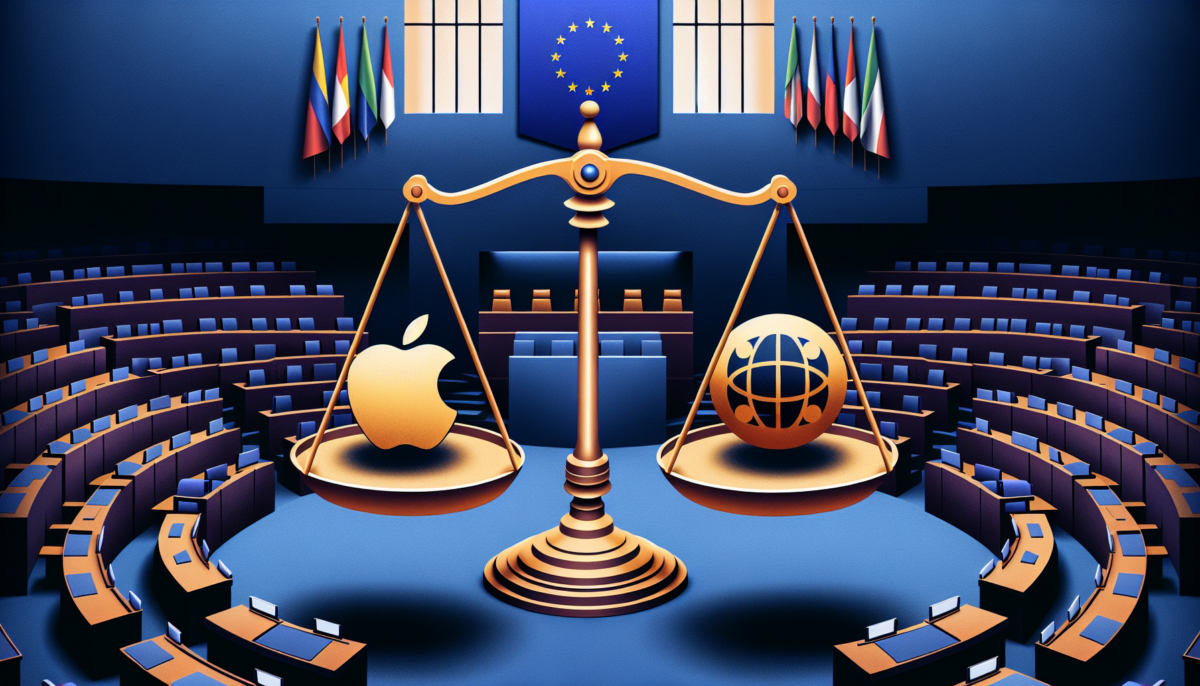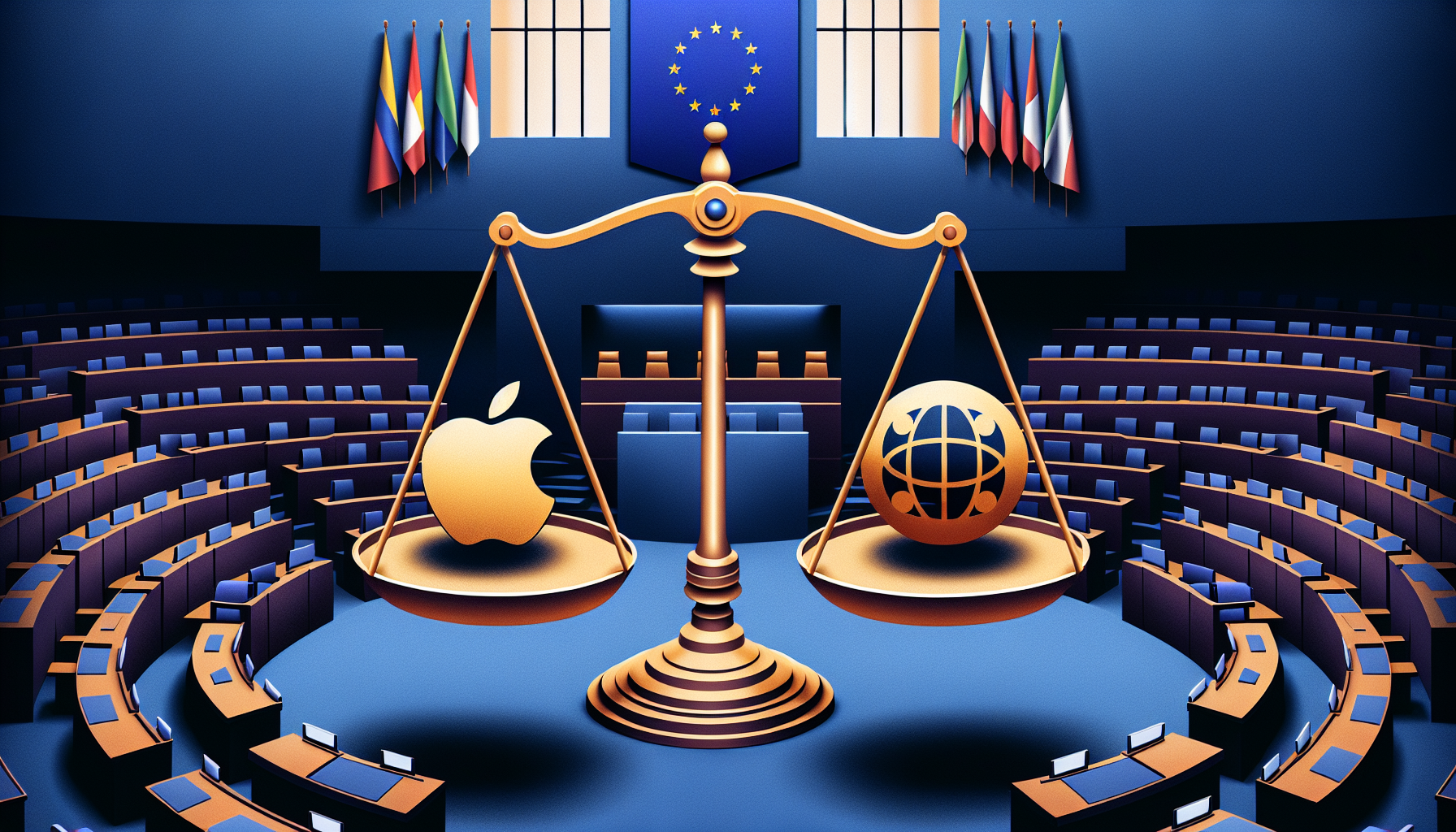EU Poised to Deliver Significant Judgments on Apple and Meta in the Upcoming Weeks
We independently review everything we recommend. When you buy through our links, we may earn a commission which is paid directly to our Australia-based writers, editors, and support staff. Thank you for your support!

Quick Overview
- The European Commission is set to announce decisions regarding Apple and Meta concerning possible violations of the Digital Markets Act (DMA).
- Ongoing investigations since March 2023 have targeted whether both firms exploited their dominant positions in the market.
- Expected fines for violations may be limited, yet the consequences for future oversight are substantial.
- The DMA aims to foster fair competition and enhance consumer options within the EU’s digital market landscape.
- The outcomes may impact global technology regulatory practices, with Australia closely monitoring the situation.
- Existing trade frictions between the US and EU complicate the implementation of these regulations.
EU Antitrust Decisions Awaited for Apple and Meta
The European Commission is poised to reveal significant rulings regarding Apple and Meta Platforms in the near future as part of its enforcement of the Digital Markets Act (DMA). These decisions will assess whether the tech giants have breached new EU regulations intending to limit the influence of “gatekeeper” platforms and enhance competition in digital environments.

Comprehending the Digital Markets Act (DMA)
Initiated in November 2022 and enforceable as of March 2023, the DMA is a significant regulatory initiative by the EU aimed at overseeing digital platforms that are pivotal to the internal market. It stipulates a range of responsibilities and limitations for these “gatekeepers” to avert them from unfairly favoring their services or hindering consumer choices.
Under the DMA’s provisions, entities such as Apple and Meta are required to guarantee interoperability, permit users to remove pre-installed applications, and avoid self-preferencing their offerings in visibility or rankings. Non-compliance may lead to fines reaching up to 10% of a firm’s overall global revenue, with repeated infractions resulting in tougher punishments, including potential structural adjustments.
Apple and Meta Under Increased Scrutiny
The European Commission initiated formal investigations into Apple and Meta as of March 2023. Apple is facing examination regarding its App Store regulations, particularly concerning directing users towards external payment solutions and distributing apps outside its closed system. Meanwhile, Meta is under investigation regarding its advertising practices and the alleged bundling of offerings across platforms like Facebook, Instagram, and WhatsApp, which may restrict consumer selection and hamper competition.
While preliminary penalties may remain relatively small, the broader reputational and legal consequences are extensive. Both Apple and Meta have refuted accusations of wrongdoing, asserting that their business practices promote enhanced user experience and innovation.
Australia Watching Developments Closely
In recent years, Australia has taken a firm approach to digital oversight, with the Australian Competition and Consumer Commission (ACCC) advocating for reforms to tackle issues similar to those addressed by the DMA, including the dominance of digital platforms, unfair competition, and opacity in algorithmic rankings.
Observers believe that rulings from the EU could establish a benchmark for nations like Australia, which is deliberating its own Digital Platforms Services Inquiry. A robust enforcement indication from Europe could motivate the ACCC to pursue more assertive regulatory initiatives at home.
Geopolitical Tensions Complicate Matters
The impending decisions unfold against a backdrop of rising trade tensions between the United States and the EU, intensified by previous tariff conflicts and worries over digital sovereignty. Certain EU member nations, particularly France, are advocating for more stringent measures against American technology corporations, perceiving them as a threat to European digital autonomy.
These geopolitical factors are expected to affect both the timing and the tone of the upcoming rulings, potentially further complicating diplomatic relationships between Brussels and Washington.
Conclusion
The European Commission’s expected decisions regarding Apple and Meta under the Digital Markets Act will mark a crucial juncture in global tech regulation. Although immediate financial penalties may be minimal, the wider ramifications—encompassing compliance requirements, modifications to business models, and potential international ripple effects—are significant. Regulatory agencies and technology firms in Australia are observing closely as the EU forges a new path toward fairness and transparency in digital markets.
Q: What is the Digital Markets Act (DMA)?
A:
The DMA is a legislative framework in Europe aimed at curtailing the market power of large digital platforms. It lays down explicit obligations for “gatekeeper” entities to foster fair competition and consumer choice throughout the EU’s digital marketplace.
Q: What prompted the investigation into Apple and Meta?
A:
Apple is under investigation for its restrictive App Store practices, while Meta faces inquiries regarding its service bundling and dominance in digital advertising tools, which may restrict competition and consumer options.
Q: What sort of penalties might Apple and Meta incur?
A:
They may face fines up to 10% of their global income for violations of the DMA. Although initial fines are likely to be modest, ongoing non-compliance could precipitate more serious penalties, including structural changes.
Q: How does this impact Australia?
A:
Australia’s consumer protection agency, the ACCC, is evaluating analogous regulatory reforms. The EU’s decisions could shape Australian policy, particularly as it endeavors to create a fair competitive environment for local tech players.
Q: When is the EU expected to make its decisions?
A:
As per the EU’s antitrust chief, Teresa Ribera, decisions regarding Apple and Meta are anticipated “in the coming weeks,” although a specific timeline has yet to be disclosed.
Q: Are these the first enforcement actions taken under the DMA?
A:
Yes, these represent some of the initial major enforcement moves under the DMA, which became enforceable in March 2023. The outcomes will likely set important precedents for future enforcement initiatives.
Q: Could these rulings alter the global operations of Apple and Meta?
A:
Yes. Given the significance and influence of the EU market, regulatory adjustments in Europe frequently impact company practices across other regions, including Australia, as firms strive to ensure compliance and mitigate further regulatory scrutiny.
